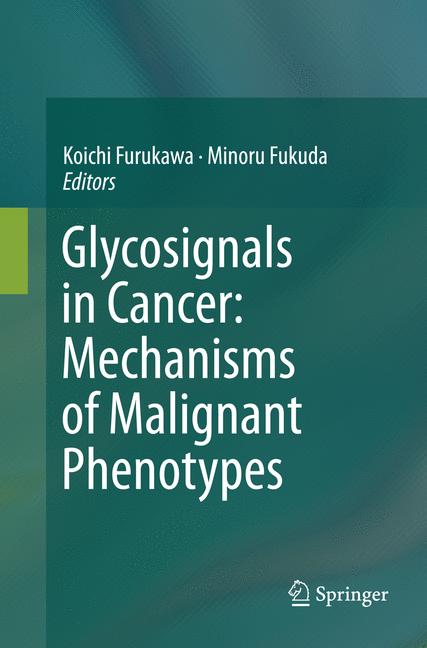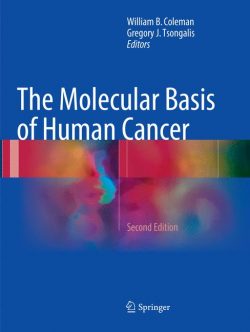This book is a collection of cutting-edge studies on the functions and mechanisms of glycosylation in cancers. Along with progress in genomics and proteomics, new findings in the significance of these complex carbohydrates, through the regulation of cell signals, have been elucidated in a wide variety of biological events. This volume provides a comprehensive summary of glycosignals and their involvement in cancer, covering numerous topics such as glycosylation machineries, regulation of phenotypes, cell signaling, immune regulation, complex carbohydrate organization, and clinical applications. The contents have been organized to promote ready understanding, covering basic to clinical research and studies on micromolecules, to animal/human cells and tissues. This book is an essential read for students and young researchers interested in cancers and carbohydrates. Specialists in glycobiology will also benefit from the new results and approaches detailed here, which provide insights into future directions of functional studies of sugar chains in both basic and applied research.
Part 1 Changes of Glycosylation Machineries in Cancer Cells.- 1 Roles of Fucosyltransferases in Cancer Phenotypes.- 2 Glycosyltransferases and Gastric Cancer.- Part 2 Regulation of Cancer Phenotypes by Carbohydrates.- 3 Differential Roles of Mammalian Sialidases in Cancers.- Part 3 Altered Cell Signaling in Cancer Cells.- 4 Regulatory Mechanisms for Malignant Properties of Cancer Cells with Disialyl and Monosialyl Gangliosides.- 5 Regulation of Growth Factor Receptors by Glycosphingolipids.- 6 Nutrient Regulation of Cancer Cells by O-GlcNAcylation.- Part 4 Regulation of Immune Systems and Cancers by Carbohydrates.- 7 Function of Unique O-Glycan Structures in Protecting Gastric Mucosa Against Helicobacter pylori Infection and Gastric Cancer Development.- 8 Sialylation and Immune Surveillance of Cancer by Siglecs.- Part 5 Changes in the Organization of Complex Carbohydrates in Cancers.- 9 Expression and Function of Poly-N-Acetyllactosamine Type Glycans in Cancer.- 10 Role of Glycans in Cancer Cell Death: A Deadly Relationship.- Part 6 Implication of Sugars in Cancer Diagnostics and Therapeutics.- 11 Targeting Glycans for Immunotherapy of Human Cancers.
This book is a collection of cutting-edge studies on the functions and mechanisms of glycosylation in cancers. Along with progress in genomics and proteomics, new findings in the significance of these complex carbohydrates, through the regulation of cell signals, have been elucidated in a wide variety of biological events. This volume provides a comprehensive summary of glycosignals and their involvement in cancer, covering numerous topics such as glycosylation machineries, regulation of phenotypes, cell signaling, immune regulation, complex carbohydrate organization, and clinical applications. The contents have been organized to promote ready understanding, covering basic to clinical research and studies on micromolecules, to animal/human cells and tissues. This book is an essential read for students and young researchers interested in cancers and carbohydrates. Specialists in glycobiology will also benefit from the new results and approaches detailed here, which provide insights into future directions of functional studies of sugar chains in both basic and applied research.
Shows how sugar chains are critically involved in malignant phenotypes of cancers
Presents a variety of modes by which sugar chains modulate cell signals determining cell fates
Explains how up-to-date results of life technology and information are being applied in glycobiology research of cancers
Inspires the application of knowledge about signals generated via glycosylation for diagnosis and therapy of cancers





